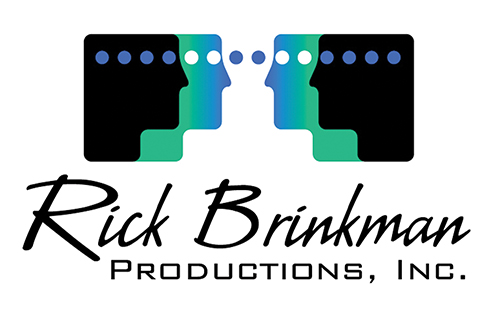Dr. Rick Brinkman explains why people act the way they do and what you can do about it, to employees of ITV London, UK at their December Lunch & Learn.
Viewing entries in
Difficult People
Dr. Rick Brinkman teaches you how to apologize with the help of his two cats. Watch as he coaches Neelix to apologize to Leela. Learn the one thing you absolutely must NOT do when you apologize or it will not work and in fact will backfire and make things worse.
I am proud to announce that our book Dealing with People You Can't Stand, How to Bring Out the Best in People at Their Worst (Brinkman & Kirschner, McGraw-Hill 2004, 2003, 2012) is now in it's 25th language. The companion book which we affectionately call "the Cliff Notes" version: 24 Lessons for Managers: Dealing with Difficult People has also come out in Polish.
LISTEN VIA SOUND-CLOUD SHOW SUMMARY
1. What is Conscious Communication?
2. What are the top ten difficult behaviors plus 3?
3. The behaviors are not “personality typing”
Listen to this 20 minute podcast where we specifically touch on Know-it-All behavior and how to open people's mind to the ideas of others. http://www.blogtalkradio.com/legalmanagementtalk/2014/08/12/how-to-deal-with-high-maintenance-co-workers-in-your-law-firm
http://youtu.be/aNMOgcb6pvk How to deal with Meddling from the Enhanced eBook "Dealing with People You Can't Stand, How to Bring Out the Best in People at Their Worst," now at the iTunes bookstore.
Give it as a gift for that person with an iPad. The iTunes bookstore has now added the ability to buy a book as a gift for a person.
With the help of his two Cats, Neelix and Leela Dr. Rick will show you how to avoid the #1 mistake made when apologizing and a 3 step strategy to have everyone let go of the past and move forward.
RULES OF NON - ENGAGEMENT When it comes to attending family events, you always have a choice:
Announcing the Online Class: Conscious Communication University Learn how to become a masterful communicator and handle difficult behaviors like, whining, negativity, attacks, tantrums, withdrawal and more.
(from Dealing with Relatives, Brinkman & Kirschner, McGraw-Hill) There are three “Magic Numbers” to know when it comes to dealing with your relatives: Geography, Frequency, and Time
To help you go from “have to” to “don’t have to” to “don’t want to” or “really want to!” we offer you a pre-obligation checklist. While you don’t have to use it, you may want to give it a try.
Everyone has family that is sometimes difficult to deal with. But if you’ve had it with the criticism and rudeness, if you’re fed up with interference, tired of taking orders, unwilling to be taken advantage of, or frustrated with egotism,don’t despair. Remember, you always have a choice. In fact, you have five choices:
An association is a trigger like the song or smell that suddenly transports you back through time. When it comes to family both the people and the environment are powerful triggers.
DEALING WITH RELATIVES - Tip Du Jour "Dealing with Criticism"
When being criticized the first thing to always keep in mind is that when people criticize, they are the ones with the problem not you. They have an issue with something and are projecting it on you.
The second thing to do is not engage in the content of the communication. Keep the focus on them, not you. You do this by speaking to "intent" and not "content". Intent is the purpose behind a communication. Content is the communication itself.
So if someone makes a rude comment about how you look, instead of defending yourself you can just say, "Well I didn't realize how fashion conscious you were." You are making a statement about her, not you.
Even better is to project positive intent. That means you act like she has good intentions even if she doesn't. An example of this would be, "Why thank you for caring about how I look. That is so sweet of you."
You have now accomplished a two fold purpose. One, if she is out to get you and you can't be gotten, it messes it up for her. Second you have trapped them into the positive intent. It is unlikely they will say, "No you stupid #^&*# I'm trying to cut you down.” Instead they will not deny your positive projection and will be forced to go along with the positive direction you set.
What if the criticizer is a parent? With parents, projecting positive intent is absolutely, positively the way to go. If they say you are fat, thank them for caring about your health and well being. If they want to know when you are getting married, appreciate them for caring about your relationship happiness.
These kinds of positive projections will melt a parent. Parents in general feel under appreciated by their children. Usually when you positive project on a parent they roll over and start kicking their leg like a dog getting it's stomach rubbed. They will forget all about what they were criticizing you about and bask in your appreciation. Then you can just change the subject.
Prepare yourself! What positive projections will you say, when they say, what you know they will say. ;-)

